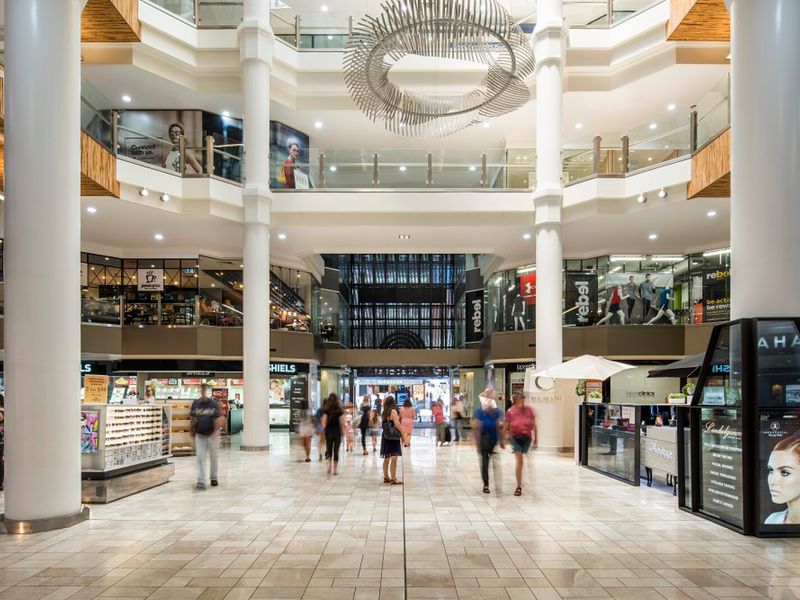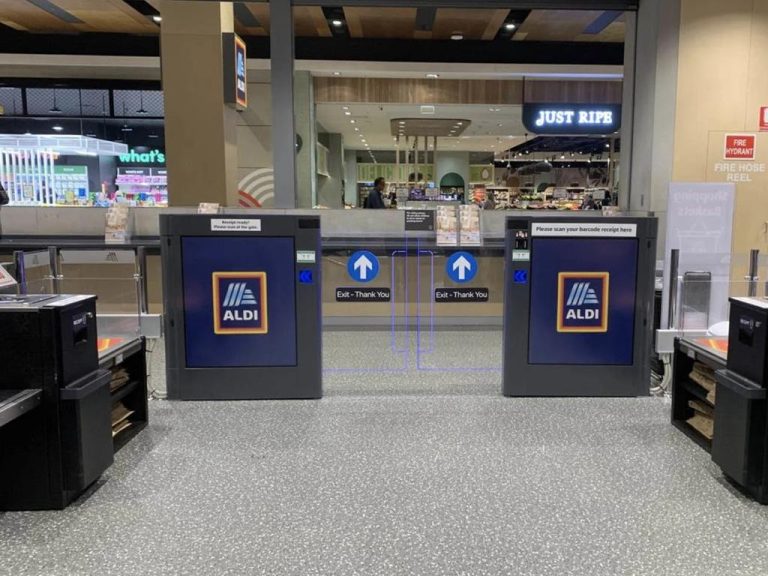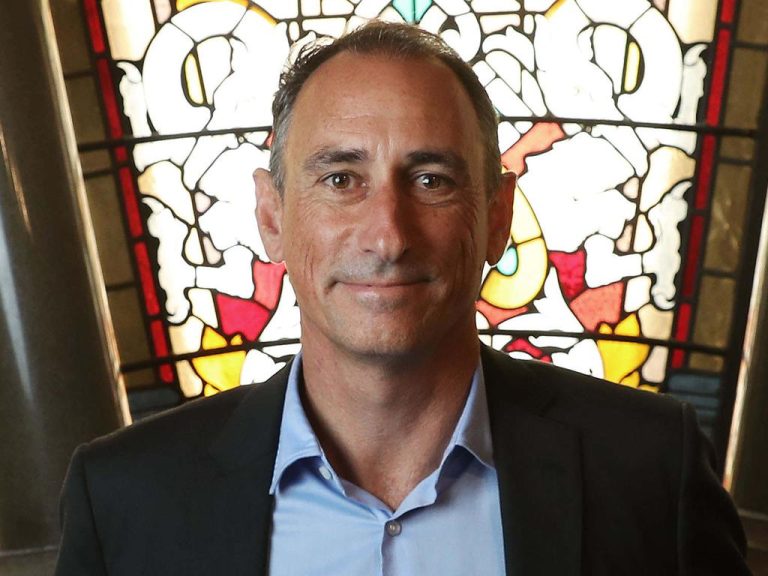COVID-hit retailers on road to recovery after strong Christmas sales

Retailers hope strong Christmas trading will push them further along the road to recovery after being hit hard by the coronavirus pandemic.
Australians are estimated to have spent more than $50 billion in the all-important Christmas trading period, with online shopping reaching record levels.
REA Group chief economist Nerida Conisbee said coronavirus restrictions and lockdowns created a tough 2020 for the Australian retail sector, although the impact was uneven.
“We did see during lockdown times big drops in retail trade but then when things opened up again we saw these really big spikes in activity,” she said.

Retail trade is recovering after a tough 2020 for many retailers. Picture: realcommercial.com.au/sold
Ms Conisbee said retail trade was recovering rapidly, expecting a strong Christmas would help set up some good months for retailers and shopping centre owners.
National Retail Association CEO Dominique Lamb said 2020 was extremely challenging for retailers.
“No doubt 2020 was the toughest year on record for retailers, and we know that many simply didn’t make it through,” Ms Lamb said.
“It wasn’t just the trading conditions, and in some states being prevented from trading at all,” she added.
“Many retailers found the additional red tape and paperwork a significant burden, especially when the rules were subject to change without notice.”
Some types of retail did well during the pandemic, including supermarkets and big-box retailers, while COVID lockdowns had a massive impact on discretionary spending.

Large format retailers like Bunnings did well during COVID lockdowns. Picture: realcommercial.com.au/sold
“If you have a look at large format retailing groups like Harvey Norman and Bunnings, anything that sold items that people wanted while they were locked down did very well,” Ms Conisbee said.
“Conversely travel agents, apparel, department stores, and cafes and restaurants particularly, saw very bad conditions.”
Strong end to 2020 for many retailers
Australian Bureau of Statistics data released this week showed retail sales rose 7.1% in November, led by a spending rebound in Victoria after Melbourne’s lockdown ended.
“By all reports most businesses continued to enjoy strong sales in the lead-up to Christmas and in the post-Christmas sales period as well,” Ms Lamb said.
“Of course this doesn’t mean that everyone everywhere is suddenly enjoying great trading conditions.”
More people did their Christmas shopping earlier to take advantage of the Black Friday and Cyber Monday sales, with economists expecting the ABS December retail trade data to show a decline after the November surge.

Australians spent more than $50 billion during the Christmas sales period. Picture: realcommercial.com.au/lease
The NRA predicted total sales of $52.4 billion (up 5%) for the entire Christmas period, covering the last half of November and all of December.
The Australian Retailers Association/Roy Morgan forecast pre-Christmas sales would rise 2.8% to $54.3 billion, predicting Australians would spend another $19.5 billion (up 3.9%) between Boxing Day and 15 January.
Ms Lamb said consumers are confident and willing to spend money on themselves that may otherwise have gone towards overseas travel and other activities.
“Towards the end of 2020, we’ve seen a focus on purchases that might be considered a ‘treat’, possibly because people were spending money on luxury items that otherwise may have been spent on travel or dining throughout the year when large parts of the population were locked down.
“We would expect that these areas – clothing, footwear, department stores and dining out – will continue to enjoy a resurgence in coming months.”
Ms Lamb added households had built up their savings during 2020, which she said would hopefully ensure confidence remained high into 2021.
Aussies embrace online shopping during COVID
The COVID lockdowns accelerated the trend towards online shopping, forcing many retailers to expand their online services while shopping centres upped the ante in trying to lure in customers before Christmas.
The strong growth in online shopping created Australia Post’s busiest Christmas ever, with more than 52 million parcels delivered during December.
The NRA expected Christmas online sales rose to a record $5.2 billion, up from $3.4 billion in 2019.
Ms Lamb said the rise reflected changed shopping habits during COVID as well as the increasing popularity of Black Friday/Cyber Monday sales and the increased online offering by retailers.
“As more and more people get used to shopping this way, we expect a lot of this internet sales traffic to remain even once conditions return to normal,” she said.
The acceleration of ecommerce as more people shop from home has increased activity in the industrial property sector, as retailers take up more warehouse space.
The future of retail stores
Ms Conisbee said a number of retailers shut down during COVID or closed stores.
“If they didn’t shut down they did look very closely at their retail floorspace requirements,” she said.
“Most retailers would have done some form of store consolidation.”
Ms Conisbee described CBD retail, particularly in Melbourne, as the main property market victim of the pandemic as lockdowns and working from home kept people away from city centres, adding it would take time to recover.
Ms Conisbee said forced closures during COVID-19 lockdowns impacted store turnover and rent relief for tenants had led to low returns for landlords.

Shopping centre owners have faced the issue of lower rental returns during the pandemic. Picture: Getty
“The power really shifted into the tenants’ hands as opposed to the landlords’ hands, so that made it very problematic for landlords because their rental returns reduced during the year,” she said.
“They not only had the rental moratorium but there were also heavy negotiations that took place with tenants to get better rental deals.”
Ms Conisbee said shopping centre owners would need to get used to lower rental returns. She said it may be harder for owners to fill vacancies, signalling many will become more interested in short-term leasing options like pop-up shops.







